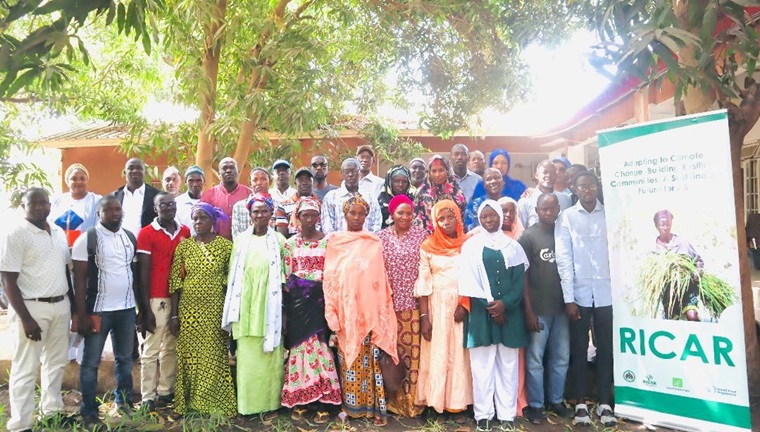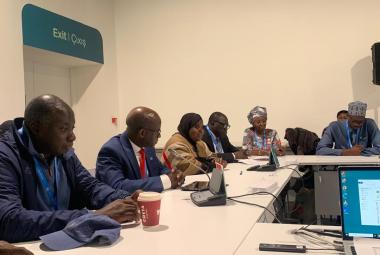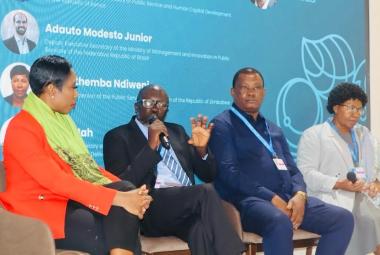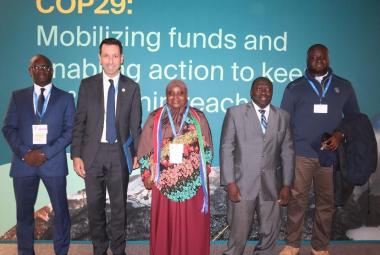The Ministry of Environment, Climate Change and Natural Resources, through the Rural Integrated Climate Adaptation and Resilience Building (RICAR) project, in collaboration with the World Food Programme, recently held a sub-national training on climate change and systematic adaptation planning.
Held in the Central River Region (CRR) and Upper River Region (URR), the training aimed to equip stakeholders to lead community-based climate adaptation efforts, and to support communities in planning, implementing, monitoring, and assessing resilience-building and adaptation measures.
Speaking on behalf of the ministry at the sub-national training in Basse, URR, Deputy Permanent Secretary Ms. Bintou Gassama emphasised the government’s commitment to climate action, highlighting the establishment of the National Climate Change Secretariat under the Ministry of Environment, Climate Change, and Natural Resources.
This secretariat is tasked with integrating climate change into national and sub-national plans, including policies both new and existing.
The National Project Coordinator of the RICAR project, Ms.Aji Oulaye Njie, pointed out gender consideration as a crucial element for inclusive and effective climate action. “This means taking into account the different needs and vulnerabilities of men and women, and ensuring that both men and women are involved in the planning and implementation of adaptation measures”.
She believed that the training session would provide the knowledge needed to develop and implement a gender-integrated community adaptation plan.
The Vice Chairman of Basse Area Council, Mr. Abubacarr M. Danjo underscored the need for collective responsibility in adapting to climate change’s effects, urging all participants to approach the training with seriousness and dedication.
Funded by the UNFCCC Adaptation Fund, the project seeks to enhance the adaptive capacity of rural populations in The Gambia through support to climate-resilient and diversified livelihoods, by focusing on solid climate change adaption activities to address the identified climate risks and vulnerabilities.
The project design adopted an integrated risk management approach to address the interface between climate change, agriculture, and food security.







